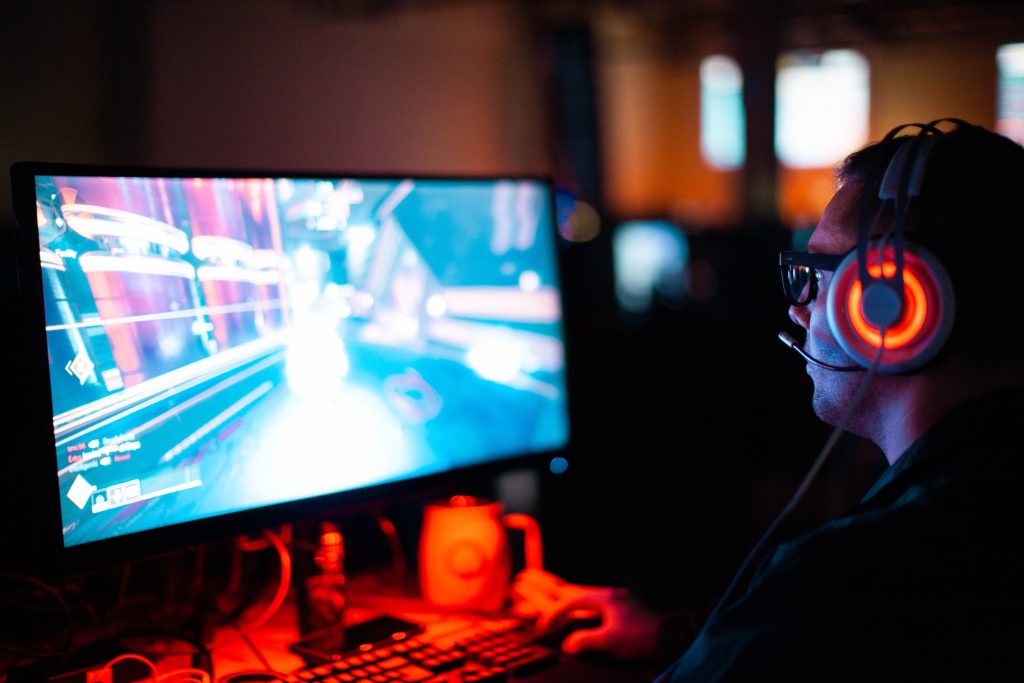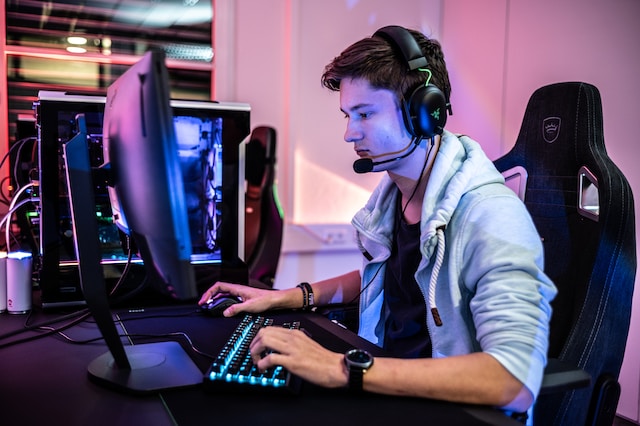Transitioning from a casual gamer to a professional in the competitive gaming world isn’t easy. Instead, it’s a journey of skill, strategy, and dedication. As eSports continue to surge in popularity and gain recognition as legitimate sports, more gamers are aspiring to turn their passion into a profession. This article looks at some of the key steps it takes to go from gaming as a hobby to competing at the highest levels of the eSports arena.
Understanding the Competitive Gaming World
The eSports industry has experienced exponential growth, becoming a global phenomenon with a multi-billion-dollar market. This expansion encompasses various genres, each with its unique appeal and community. Multiplayer Online Battle Arenas (MOBAs), First-Person Shooters (FPS), and Real-Time Strategy (RTS) games are among the most popular, drawing millions of players and spectators. Understanding the competitive gaming landscape requires more than just knowledge of these genres; it involves immersing oneself in the professional gaming culture. This includes recognizing each community’s nuances, team play dynamics, and the constantly changing strategies that define the competitive edge in these digital arenas.
Developing the Right Skillset
When it comes to competitive gaming, mastering game-specific skills is something every player must do. A big part of that involves understanding the basic mechanics and going deep into advanced strategies and techniques. Strategic thinking and quick decision-making become crucial, especially in games that evolve rapidly and unpredictably. Continuous learning and adaptation are key, as games frequently undergo updates and strategy shifts, requiring players to keep up with the latest trends and tactics.
Poker is one example worth taking a closer look at. While understanding basic poker rules is essential, excelling at the game requires more than just familiarity with how to play the game. It demands an acute sense of observation, the ability to read opponents, and the skill to make calculated decisions under pressure. Successful poker players must develop a deep understanding of odds and probabilities and adapt their strategies based on the gameplay dynamics and the tendencies of their opponents. They must also manage their emotional responses, balancing risk and reward. This level of skill development in poker is similar to what is found in other competitive games, where mastering the nuances can make the difference between a casual player and a professional competitor.
Building a Training Regimen

A structured training schedule is essential for aspiring professional gamers who must log long hours in gameplay and balance this with theoretical study and analysis of past games. You may even need a coach to help guide you. This approach helps in identifying mistakes and learning new strategies. Equally important is maintaining physical and mental health; regular exercise, a healthy diet, and adequate rest significantly enhance cognitive functions and gaming performance. A well-rounded regimen ensures continuous improvement and helps in adapting to the constantly changing dynamics of competitive gaming.
Joining the Community and Networking
Immersing oneself in the gaming community is vital for growth and opportunity. Engaging with fellow gamers through forums, social media, and attending gaming events fosters a sense of belonging and provides invaluable learning experiences. Networking opens doors to joining teams, finding mentors, and gaining insights from experienced players. Participating in local tournaments and online competitions hones skills and builds a reputation within the community, which is important for anyone aiming to transition from a casual gamer to a professional.
Investing in the Right Equipment and Environment
Investing in high-quality gaming equipment can significantly enhance performance, offering better precision, responsiveness, and overall experience. Equally important is creating the best gaming environment possible, one that maximizes focus and comfort. This includes ergonomic seating, appropriate lighting, and a distraction-free space. While budget considerations are important, distinguishing between essential and luxury items is key. Essentials improve gameplay and comfort, whereas luxury items might offer aesthetic or marginal performance benefits, making them optional for those on a tighter budget.
Facing Challenges and Setbacks
Challenges like burnout, pressure, and failure are inevitable in the journey from casual to pro gaming. Gamers must take these losses in stride and learn from them, maintaining a growth mindset that turns setbacks into lessons. Resilience and persistence are fundamental; they allow gamers to overcome obstacles and progress despite difficulties. Embracing these challenges as part of the journey is essential for long-term success and personal development in the competitive gaming world.



